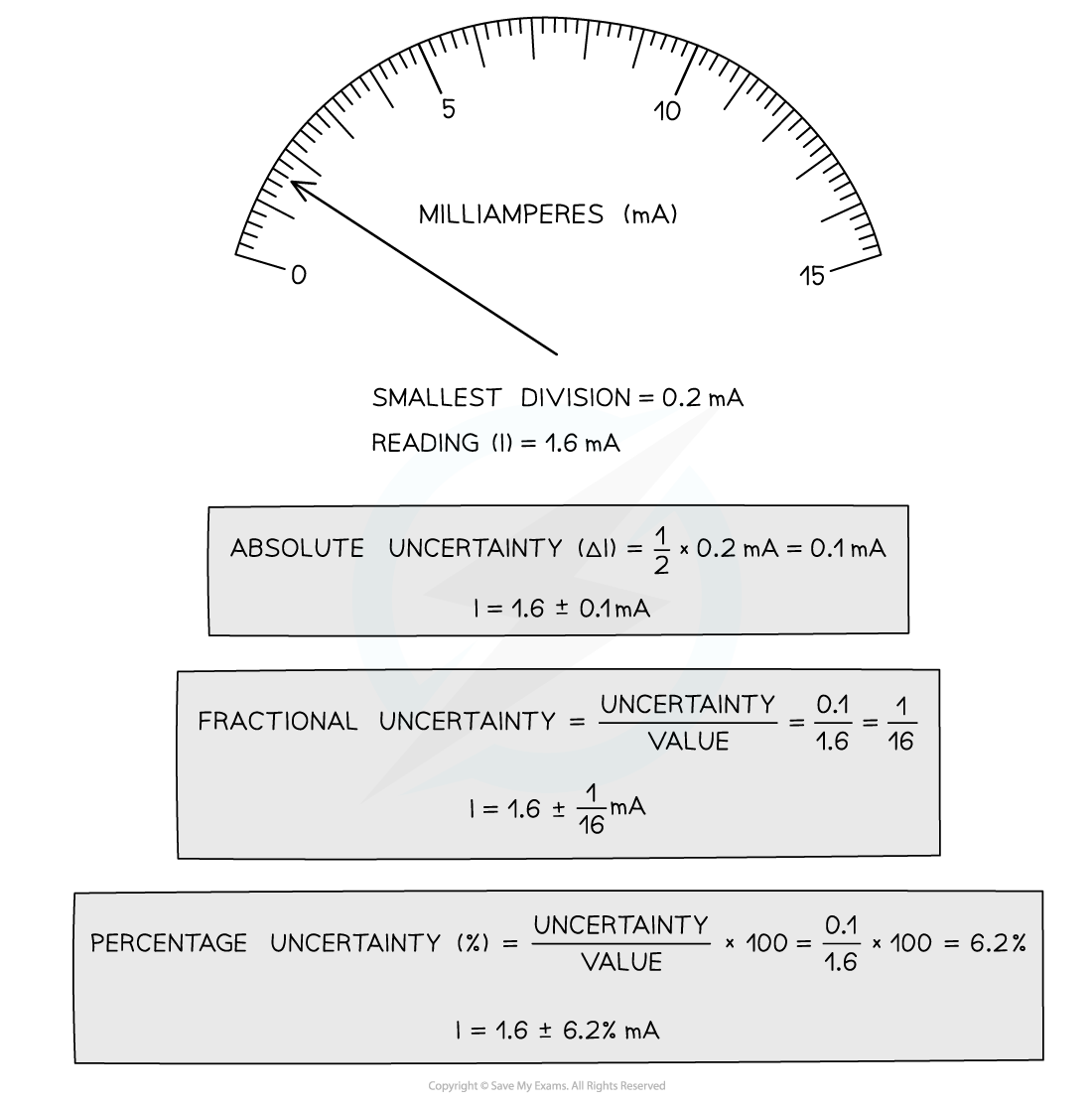Uncertainities
- Uncertainties can be represented in a number of ways:
- Absolute Uncertainty: where uncertainty is given as a fixed quantity
- Fractional Uncertainty: where uncertainty is given as a fraction of the measurement
- Percentage Uncertainty: where uncertainty is given as a percentage of the measurement
- Percentage uncertainty is defined by the equation:
Percentage uncertainty = × 100 %
- To find uncertainties in different situations:
- The uncertainty in a reading: ± half the smallest division
- The uncertainty in a measurement: at least ±1 smallest division
- The uncertainty in repeated data: half the range i.e. ± ½ (largest - smallest value)
- The uncertainty in digital readings: ± the last significant digit unless otherwise quoted

How to calculate absolute, fractional and percentage uncertainty
- Always make sure your absolute or percentage uncertainty is, at a maximum, to the same number of significant figures as the reading
- Absolute uncertainties are compounded when adding or subtracting data
Adding / Subtracting Data
- Add together the absolute uncertainties

Exam Tip
Remember:
- Absolute uncertainties have the same units as the quantity
- The uncertainty in numbers and constants, such as π, is taken to be zero
In Edexcel International A level, the uncertainty should be stated to at least one few significant figures than the data but no more than the significant figures of the data.
For example, the uncertainty of a value of 12.0 which is calculated to be 1.204 can be stated as 12.0 ± 1.2 or 12.0 ± 1.20.

